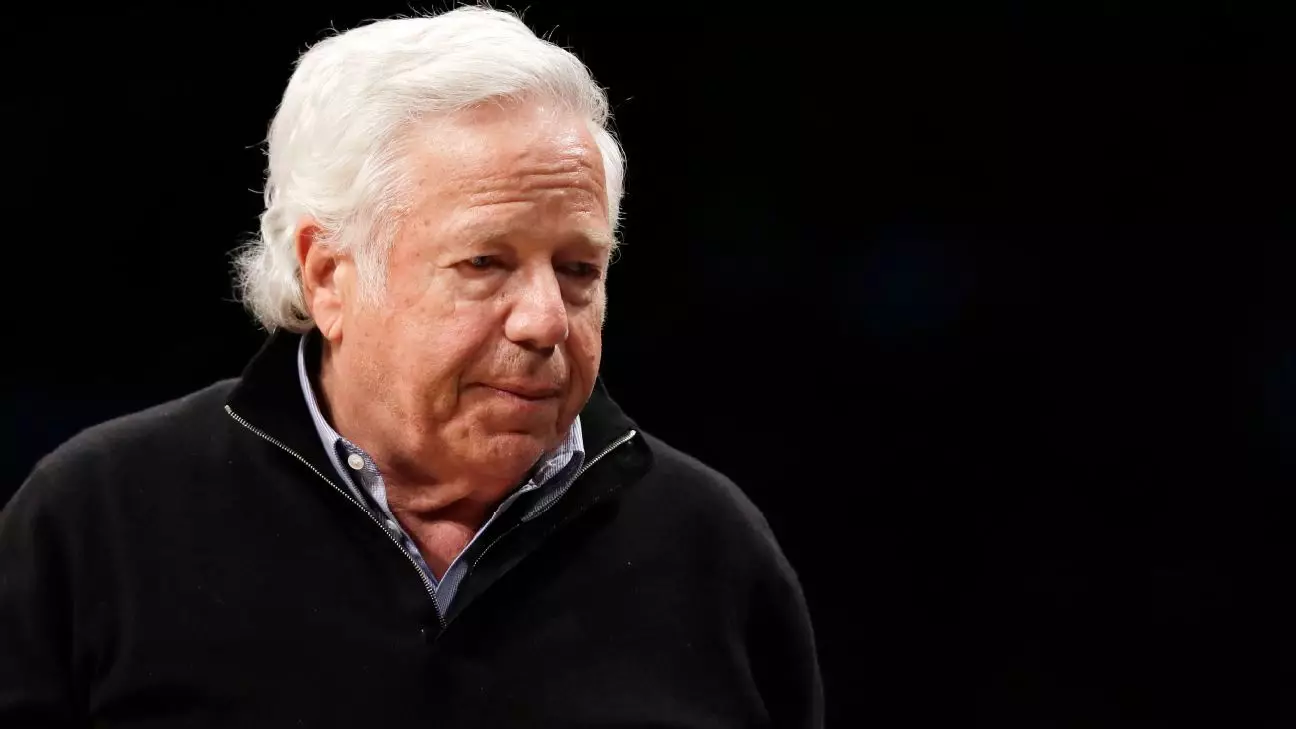As the Pro Football Hall of Fame’s annual selections roll around, one name remains consistently mentioned yet repeatedly omitted: Robert Kraft. The owner of the New England Patriots, who has steered his franchise to an astonishing six Super Bowl victories, has once again found himself overlooked by the Hall’s contributor committee as it gears up for the 2025 class. This comes as a significant disappointment to many within the football community who regard Kraft’s contributions to the NFL as monumental. Instead of Kraft, the committee has chosen to nominate Ralph Hay, a relatively obscure figure from the early history of professional football, thus sparking debate about the committee’s criteria for recognition.
For Kraft, the recent decision marks the thirteenth time in thirteen years that he has been considered by the Hall’s various committees without advancing to the final ballot. This year promises to be no different as the contributor committee announced its decision on November 12, opting instead for Hay, co-founder of the NFL and owner of the Canton Bulldogs during the league’s formative years. This pattern raises questions: Why has Kraft been consistently overlooked, and what does this signal regarding the recognition of modern versus historical figures in football?
The Case for Ralph Hay
Ralph Hay is undoubtedly a significant historical figure, credited with organizing the first meeting that led to the creation of the American Professional Football Association, the precursor to the NFL, in 1920. His contributions are emblematic of the birth of professional football as we know it today, and he is rightly celebrated in certain circles. However, critiques of the committee’s choice reveal a glaring disconnect between the legacy of Hay and the achievements of Kraft. Supporters of Kraft argue that his modern impact—and the six Super Bowl wins during his tenure—represent a transformative influence on the sport that is unparalleled in the league’s history.
Despite his historical significance, critics of Hay’s nomination often highlight contradictions in his legacy, particularly his belief that players should not be compensated fairly. This has led to discontent among those who regard the current players and their treatment as equally deserving of recognition in terms of the substantial contributions they make to the game’s popularity and financial success.
When dissecting the successes of both Kraft and Hay, the metrics of achievement are strikingly different. Kraft purchased the Patriots in 1994, and subsequently implemented strategies that resulted in redefining the franchise as a powerhouse in the NFL. Under his leadership, the Patriots became a model of excellence and consistency, achieving what many would deem the most successful dynasty in professional sports. According to statistics, under Kraft’s ownership, the Patriots led the NFL with the most championships, playoff appearances, and playoff wins since 2000.
In stark contrast, Hay’s own tenure as an owner lasted just four years and occurred during an era when professional football was still building its identity. Though Hay’s role in the establishment of the league is undeniable, the brevity of his ownership, coupled with the limited success of his franchise, raises questions about the criteria for selection in a modern context where enduring success is heavily regarded.
The selection process for the Hall of Fame has increasingly come under scrutiny as the NFL evolves. With a growing emphasis on the value of contemporary figures who have pioneered new paths for the league, the committee’s choices must reflect not only the historical contributions but also the most significant impacts on the game today. In recent years, several owners like Eddie J. DeBartolo and Jerry Jones were inducted, further complicating the narrative surrounding Kraft’s ongoing exclusion.
The Hall of Fame’s committee stated that the finalists would be announced jointly in December, yet the decision not to advance Kraft this year has left many advocates feeling disillusioned. The disparity of recognition given to figures such as Hay versus the modern trailblazers like Kraft begs the question of what “deserving” truly means in the context of football history.
With Kraft remaining an outsider looking in, the question looms: Can the Hall of Fame adapt its criteria to acknowledge the complexities of modern success? Kraft’s supporters continue to advocate tirelessly, arguing that his induction is not just deserved but essential for the integrity of the Hall. As the landscape of professional football continues to evolve, the Hall of Fame faces a pivotal moment: Will it recognize those who have not only paved the way but also driven the sport into the future?
For now, Kraft watches from the sidelines of recognition, his legacy intertwined with the highs and lows of a sport that continues to grapple with its own history. It’s a situation that begs not just for reflection but for a redefining of excellence within the annals of the Pro Football Hall of Fame.

